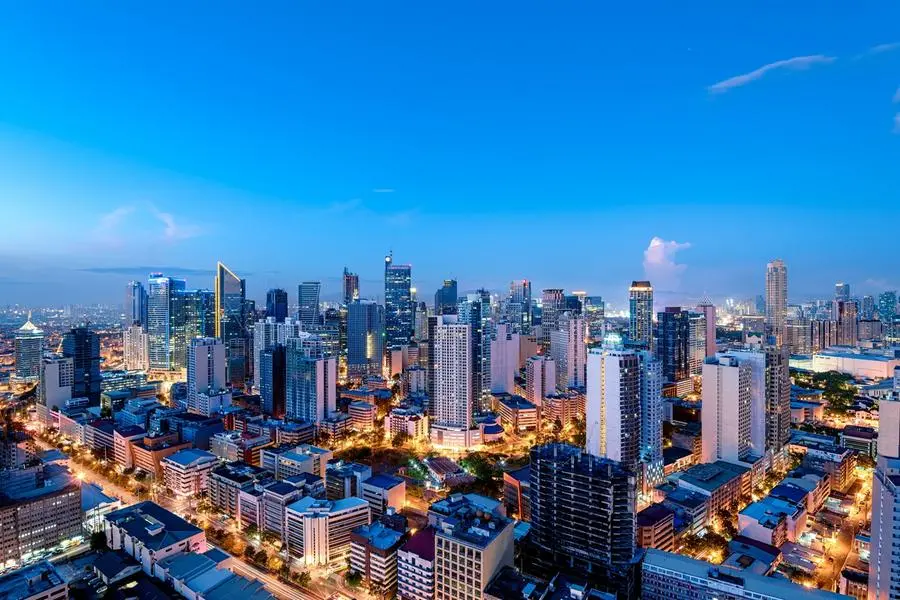PHOTO
Nine in every 10 Filipinos have personally experienced the impacts of climate change in the past three years, a survey conducted by Social Weather Stations (SWS) showed.
Results of the Dec. 10 to 14 survey released on Thursday showed that 93 percent of respondents said they experienced little to severe impact of climate change.
Some 17 percent said they experienced severe impact, 52 percent moderate and 24 percent little impact. Only six percent said they did not experience the impact of climate change in the past three years.
Compared to a similar survey conducted by SWS in 2017, the overall number of those who said they experienced the impact of climate change increased by six points from 87 percent (20 percent severe, 42 percent moderate and 25 percent little).
Awareness of climate change also increased from 74 percent in 2017 to 81 percent in the December 2022 survey.
Some 76 percent of the respondents believed that humanity could do something to stop or slow down climate change if everyone really tried, while 23 percent said it is beyond humanity's control.
A large majority of 88 percent also agreed that people like themselves can do something to reduce climate risk.
Solutions
Most of the respondents in the recent survey are aware of various solutions that can be taken to reduce the impact of climate change, including saving energy (95 percent), planting trees in the right places and protecting forests (95 percent) and walking, cycling or taking public transportation (93 percent), reducing, reusing, repairing and recycling (91 percent) and throwing away less food (86 percent).
SWS then asked those who were aware of each solution if their family does them to reduce the impact of climate change.
Engagement was highest in terms of saving energy (88 percent doing, seven percent might do, four percent does not do), followed by walking, cycling or taking public transportation (81 percent doing, 13 percent might, six percent not).
It was followed by throwing away less food (75 percent doing, 14 percent might, 11 percent not), reducing, reusing, repairing and recycling (74 percent doing, 17 percent might, eight percent not) and planting trees and protecting forests (63 percent doing, 24 percent might, 13 percent not).
The survey had 1,200 adult respondents and an error margin of plus/minus 2.8 percent.
El Niño by Q3
The Philippine Atmospheric, Geophysical and Astronomical Services Administration (PAGASA) said that there is an increased probability of El Niño phenomenon setting in by the third quarter this year.
PAGASA has raised the alert level to El Niño Watch as the probability of occurrence has reached 55 percent or more.
El Niño will likely develop from July to September 2023, following a transition from the current neutral conditions in the phenomenon's southern oscillation.
Ana Solis, chief of PAGASA climate prediction and monitoring section, said that recent conditions show that the El Niño phenomenon could last until the first few months of 2024.
El Niño, which increases the likelihood of below-normal rainfall conditions, is characterized by unusually warmer than average sea surface temperatures in the central and eastern equatorial Pacific.
The phenomenon could bring negative impacts such as dry spells and droughts in some areas of the country, with forecasters expecting early impact on Visayas and Mindanao.
PAGASA administrator Vincent Malano urged farmers and government agencies to prepare and get ready for the possible adverse effects of El Niño.
Caritas for renewable
Meanwhile, Caritas Philippines vowed to work for Catholic schools and church buildings to shift to the use of renewable energy.
In a statement issued yesterday, Caritas Philippines and Social Action Network committed itself into working toward eight goals in line with its call to 'Declare Climate Emergency Now of the Rights of Nature (RoN) Movement.'
Since 1988 the Catholic Church has already been saying that the country was in peril and asked the government and civic and church leaders to save our 'beautiful land.' However, 35 years later, they are still making the same appeal.
Over the years, the country has seen and experienced the effects of climate change such as the rise in sea levels three times the world average, destruction of naturally rich ecosystems, and forests steadily vanishing. Typhoons, while less in number, have become more destructive.
'We cannot be business as usual. While we have institutionalized programs on agroecology, invested millions in natural farming, and strengthened our advocacies on environmental protection, we feel that these are still not enough. More intentional and synodal actions need to be in place to mitigate climate impacts, especially in vulnerable communities,' the group said.
Copyright © 2022 PhilSTAR Daily, Inc Provided by SyndiGate Media Inc. (Syndigate.info).





















